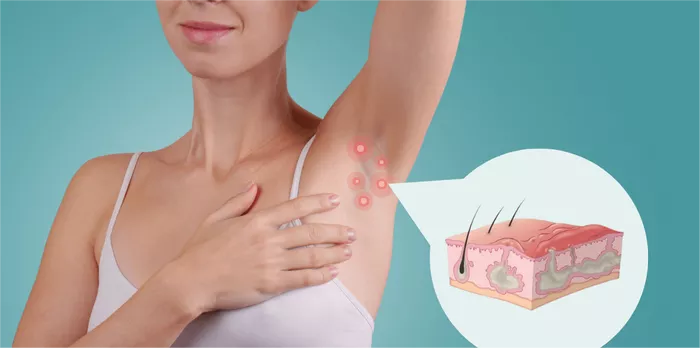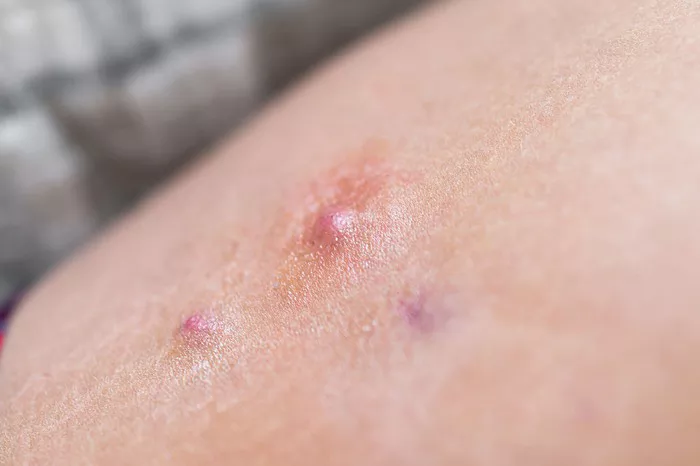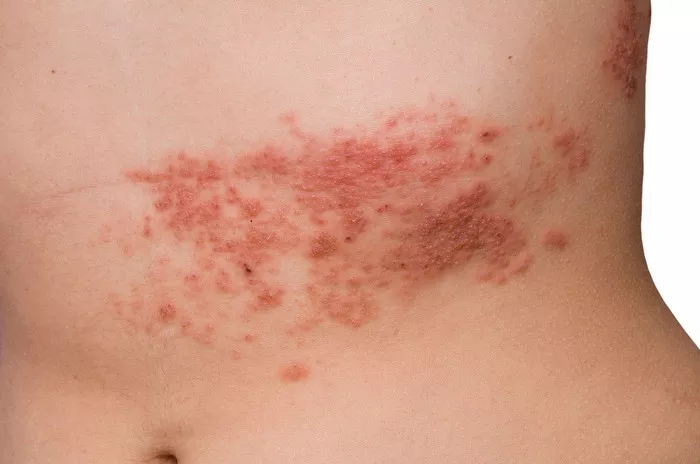Hidradenitis Suppurativa (HS) is a chronic inflammatory skin condition characterized by painful, recurrent nodules, abscesses, and sinus tracts primarily affecting areas rich in apocrine glands, such as the axillae, groin, and buttocks. While it predominantly manifests as physical symptoms on the skin, the impact of HS extends beyond the dermatological realm. Increasing evidence suggests that HS can profoundly affect an individual’s overall well-being, leading to emotional distress and a myriad of systemic symptoms that contribute to feeling unwell.
Understanding Hidradenitis Suppurativa
Before delving into the connection between HS and systemic symptoms, it is crucial to grasp the fundamentals of this debilitating condition. HS typically begins after puberty, with symptoms worsening over time. The exact cause of HS remains elusive, but it is believed to involve a combination of genetic predisposition, hormonal factors, immune dysfunction, and environmental triggers.
The hallmark of HS is the formation of painful lesions in areas where skin rubs together or where sweat glands are located. These lesions can range from small, pea-sized nodules to larger, deep-seated abscesses that may rupture and discharge foul-smelling pus. Recurrence is common, leading to chronic inflammation, scarring, and disfigurement. The physical discomfort and visible skin changes associated with HS can significantly impact an individual’s quality of life, affecting everything from mobility and self-esteem to interpersonal relationships and work productivity.
The Systemic Impact of Hidradenitis Suppurativa
While HS primarily affects the skin, growing research indicates that it is not merely a dermatological condition but rather a systemic inflammatory disorder with far-reaching implications. Beyond the localized inflammation and tissue damage seen in affected areas, HS is associated with a range of systemic comorbidities that can contribute to a general feeling of sickness and malaise.
1. Pain and Fatigue
The chronic pain associated with HS can be debilitating, interfering with daily activities and sleep patterns. Persistent pain can lead to fatigue and exhaustion, further exacerbating the sense of illness. Moreover, the psychological toll of living with a painful, disfiguring condition can contribute to emotional distress, depression, and anxiety, all of which can amplify feelings of malaise and decrease overall well-being.
2. Inflammation and Immune Dysregulation
HS is characterized by dysregulation of the immune system, resulting in chronic inflammation not only in the skin but also throughout the body. This systemic inflammation has been linked to an increased risk of developing other inflammatory conditions, such as metabolic syndrome, cardiovascular disease, and autoimmune disorders. The ongoing inflammatory response may contribute to systemic symptoms such as fever, body aches, and swollen lymph nodes, further adding to feelings of illness and discomfort.
3. Psychological Impact
The psychosocial impact of HS cannot be overstated. Living with a chronic, visible skin condition can lead to social isolation, stigmatization, and a profound sense of shame and embarrassment. Many individuals with HS report feeling misunderstood by others, leading to feelings of alienation and low self-esteem. The psychological burden of HS can exacerbate physical symptoms, creating a vicious cycle of distress and worsening illness perception.
Managing Systemic Symptoms in Hidradenitis Suppurativa
Given the systemic nature of HS and its impact on overall well-being, comprehensive management strategies are essential to address both the dermatological and systemic aspects of the disease. A multidisciplinary approach involving dermatologists, rheumatologists, psychologists, and other healthcare professionals is often necessary to provide holistic care for individuals with HS.
1. Medical Treatment
Medical management of HS typically involves a combination of topical and systemic therapies aimed at reducing inflammation, controlling infection, and alleviating symptoms. This may include topical antibiotics, oral antibiotics, anti-inflammatory medications, immunosuppressants, and biologic agents targeting specific inflammatory pathways. By addressing the underlying inflammatory processes, medical treatment can help alleviate systemic symptoms and improve overall quality of life.
2. Lifestyle Modifications
Certain lifestyle modifications can help manage systemic symptoms and improve overall well-being in individuals with HS. This may include maintaining a healthy diet, regular exercise, stress management techniques, and smoking cessation. Avoiding tight clothing and excessive friction on affected areas can also help reduce irritation and discomfort.
3. Psychological Support
Psychological support is crucial for individuals living with HS to cope with the emotional challenges associated with the condition. Cognitive-behavioral therapy (CBT), support groups, and individual counseling can help individuals develop coping strategies, improve self-esteem, and enhance resilience in the face of chronic illness. Addressing the psychological impact of HS is essential for comprehensive disease management and improving overall quality of life.
Conclusion
Hidradenitis Suppurativa is more than just a skin condition; it is a systemic inflammatory disorder with profound implications for overall health and well-being. Beyond the physical symptoms of painful nodules and abscesses, HS can contribute to systemic symptoms such as pain, fatigue, inflammation, and emotional distress, leading to a pervasive feeling of sickness and malaise. Recognizing the systemic nature of HS is crucial for developing comprehensive management strategies that address both the dermatological and systemic aspects of the disease. By addressing the underlying inflammation, managing symptoms, and providing psychological support, healthcare professionals can help individuals with HS lead healthier, more fulfilling lives despite the challenges posed by this chronic condition.


























